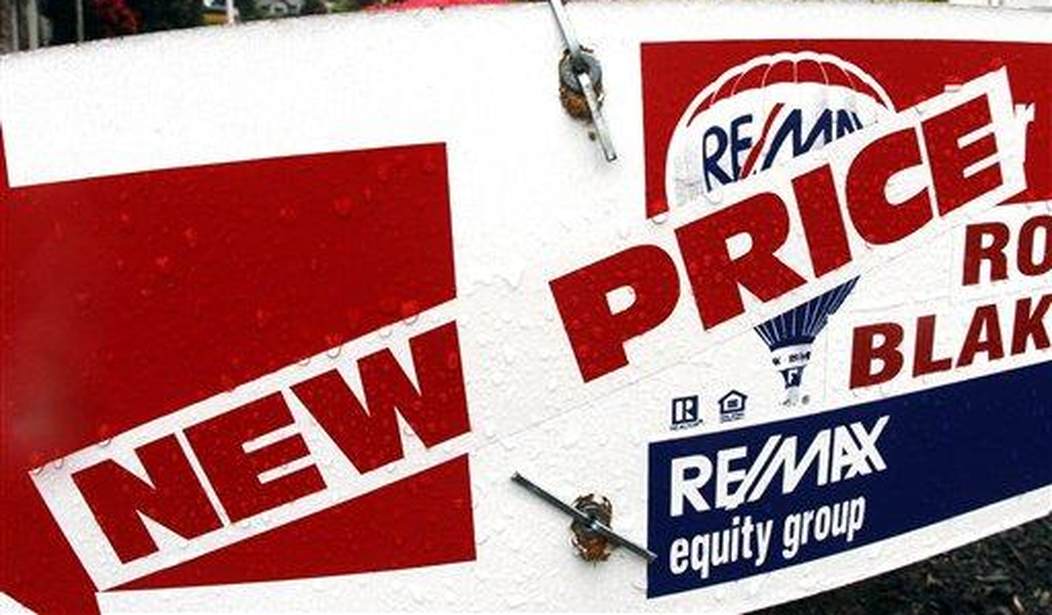They're doing it again!
When the last housing bubble burst, politicians blamed "greedy banks." They said mortgage companies lent money recklessly, making loans to people with dubious credit, for down payments as low as 3 percent.
"It will work out," said the optimistic bankers. Regulators didn't disagree. Everyone said, "Home prices will keep going up." And home prices did -- until they didn't.
The bubble popped in 2007. Lots of people were hurt, and politicians took more of your tax money to bail out Fannie Mae and Freddie Mac along with reckless banks. They also gave the Federal Housing Administration a $2 billion bailout.
Then the politicians said, "We'll fix this so it doesn't happen again." Congress passed Dodd-Frank and a thousand new regulations. The complex rules slowed lending, all right. It's one reason this post-recession recovery has been abnormally slow.
But -- April Fools'! -- the new rules didn't solve the problem of reckless lending, and it's happening again.
Because our government subsidizes home purchases, recklessness is invited. Somehow, Americans buy cars, clothing, computers, etc. without government guarantees, but politicians think housing is different.
Both parties support the subsidies.
The left wants government to help struggling families, and the right thinks home ownership sends a wholesome cultural message. Both parties have cozy connections to home-builders and lenders.
At the time of the housing crash, most high-risk loans were guaranteed by the government. Those banks wouldn't have been as reckless if they had their own money on the line.
But they knew they could grant a mortgage to most anyone and the FHA would back it or government-sponsored companies Fannie Mae and Freddie Mac would buy it. That fueled the frenzy of lending.
Recommended
After the bubble popped, I assumed the political class would learn a lesson, but they haven't. Today, even more American mortgages are guaranteed by government. More than 90 percent of new loans are backed by taxpayers. After the crash, Fannie and Freddie did raise their minimum down payment -- to a measly 5 percent -- but a few months ago, they lowered it again to 3 percent!
Are they crazy? A sensible congressman, Rep. Jeb Hensarling (R-TX), tried to get an answer from the administration's new mortgage regulator, asking in a hearing, "All things being equal, is a 3 percent down riskier to the taxpayer than a 10 percent down loan?"
A pretty basic question -- but one that director Mel Watt still dodged, responding, "Mr. Chairman, that is generally true. But when you pair the down payment with compensating factors ... look at other considerations ... you can ensure that a 3 percent loan is just as safe."
What? That's nonsense. This is what happens when pandering politicians get to dispense your money. Watt is among the worst. When he was a congressman, he pushed for mortgage subsidies for welfare recipients who made down payments as low as $1,000.
Edward Pinto, who studies housing risk for the American Enterprise Institute, says policies like this put us on the way to another bubble: "The government is once again ... saying, let's loosen credit, give loans to people that potentially can't afford them, and everything will be fine because house prices will go up."
On my show, former FHA commissioner David Stevens, who did improve lending standards a bit after the crash (before Watt and his cronies weakened them), responded that this time the government has new regulations that will prevent things falling apart: "I think in the effort, post-recession, to make sure we never go down this path again, we have created more rules than ever existed in the history of this country."
But more rules aren't a solution. Government's regulators didn't foresee the problems last time. Fannie and Freddie got a clean bill of health right up until the collapse.
The solution is less government involvement. Canada doesn't have a Fannie, Freddie or FHA. Canada didn't have the trauma of a housing bubble. In Canada, lenders and homeowners risk their own money.
Does that mean Canadians cannot afford homes? No! Without all that government help, Canada's homeownership rate is higher than ours.

























Join the conversation as a VIP Member